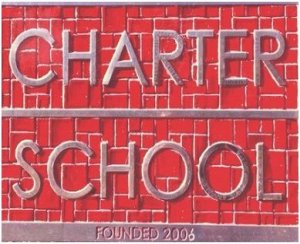
This past Monday, an article in the San Francisco Public Press laments the decrease in “classroom diversity” as parents are granted more educational options — options via charter schools.
This sentence pretty much sums it up: “A majority of families may be satisfied with the outcome, but the student assignment system is failing to meet its No. 1 goal, which the San Francisco Unified School District has struggled to achieve since the 1960s: classroom diversity.”
First of all, just don’t ask anyone how to quantify how diversity is so important and beneficial to education, especially considering myriad other aspects of pedagogical import.
The National Association of Scholars long ago showed what a trivial notion “diversity” actually is. Yet, progressives still cling to the notion that diversity is an overriding “good” — so much so that San Francisco makes it its “Number One Goal” for schools. (The Public Press article notes that “recent studies” from Stanford and UC Berkeley “show that many students do much better on tests when placed in integrated classrooms …” Among other things, I wonder just what is the definition of “many?”)
But the “benighted” populations of liberal bulwarks San Francisco and New York apparently could care less about diversity, as they’re voting with their feet to attend the public and charter schools of their choice.
In the Bay City, “most get their children into their first choices, and almost three-quarters get one of their choices.”
That parents exercise freedom of choice doesn’t sit well with some.
The district provides parents with a dizzying amount of information about the schools. The application process requires time, language skills and access to technology — advantages that often come with education and financial resources. “Choice is inherently inequitable,” San Francisco Board of Education member Sandra Fewer said at a December meeting on student assignment. “If you don’t have resources, you don’t have choice.”
Orla O’Keeffe, the district’s policy director, said affluent, educated parents compete for the small number of seats at the highest-performing schools. Children from poor and working-class families, disproportionately black and Latino, often end up in underperforming schools.
In other words, because some may have more of a … “struggle” to find out about schools, everyone must be penalized. Wha-a-a-a …?
(And a word of advice to the Public Press: You might not want to make use of illegal immigrants to make a case against school choice.)
In the Big Apple, “73 percent of New York City charters [are] ‘apartheid schools'” according UCLA’s Civil Rights Project. Ridiculous hyperbole notwithstanding, New York’s public school system (remember — charters are public) is considered the most segregated in the nation.
Some of this can be traced to the city’s “elite” public high schools — charters which require an examination to gain admission.
Some city legislators want to change or abolish such requirements altogether … not because of the inherent contradiction that public schools have entrance requirements, but, again, because diversity — even going as far as implying the historic Brown v. Board of Education requires (racially) diverse schools and classrooms.
It doesn’t. It simply bans de jure racial discrimination with regards to school attendance. Which means it is here that the NAACP and federal Department of Education — who have challenged these schools’ admission practices — could potentially have a case: Do the (charter) school entrance requirements, like exams, unfairly discriminate?
(In a much smaller venue, Delaware schools are facing a similar situation: The ACLU and Community Legal Aid Society have filed a complaint with the Department of Education’s Office of Civil Rights arguing that the state’s charter school law is causing resegregation.)
Unsurprisingly, in New York, like San Francisco, parents like school choice. Because, you know, human beings actually possess an affinity for freedom of choice.
But, akin to San Francisco, some New Yorkers bemoan that people are taking an interest in what’s best for their children:
But eliminating elementary school zones in favor of letting parents choose schools, as is the case with many middle and high schools, is not a panacea, advocates say, and if not done carefully it can even make the [racial diversity] situation worse. Clara Hemphill, the founding editor of Insideschools.org, a website based at the New School, said “the most motivated, organized parents tend to get their kids into the best schools” when there is school choice.
Again, we see (with apologies to Thomas Sowell) an anointed vision among some in both cities, that, because — heaven forbid! — there are actually parents out there who have higher quantities of the basic human traits of motivation and desire, it “isn’t fair.”
Regrettably, such is a typical progressive stance.
Given the fact that there is little support in the New York State legislature to change admission policies of the NYC schools noted, and the popularity of choice in ‘Frisco, what does this tell us?
That many progressives absolutely love diversity … except when it comes to their own children?
Dave Huber is an assistant editor of The College Fix. (@ColossusRhodey)
Like The College Fix on Facebook / Follow us on Twitter
IMAGE: Jory/Flickr







Please join the conversation about our stories on Facebook, Twitter, Instagram, Reddit, MeWe, Rumble, Gab, Minds and Gettr.